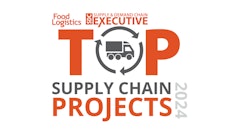Study shows return of up to 1,000 percent for customer relationship management implementations
Framingham, MA — February 2, 2004 — According to a recently completed return on investment (ROI) study "The Financial Impact of CRM," from market intelligence and advisory firm IDC, successful implementations of customer relationship management (CRM) applications have yielded returns ranging from 16 percent to more than 1,000 percent.
IDC also reported that technology-related savings account for only 7 percent of the average return, while benefits accrued from increased productivity and business process enhancements account for 51 and 42 percent of the return.
"The net impact on an organization can at times be subtle and distributed throughout the enterprise," said Mary Wardley, vice president for IDC's Customer Relationship Management Applications research. "Cost savings and productivity enhancements can be evidenced in saving a sales person 20 minutes per week in writing activity reports or answering four times the volume of Web-based service requests in the same amount of time."
Other key findings from IDC's ROI study, The Financial Impact of CRM, include:
* Nineteen percent of the companies that participated in the study generated an ROI of 50 percent or less, 52 percent generated an ROI between 51 and 500 percent, and 30 percent reported returns of 501 percent.
* Fifty-eight percent of participants experienced payback in one year or less, 35 percent experienced payback between one and three years, and 8 percent experienced payback in three years or more.
* The median initial investment in a CRM application is approximately $426,000, which includes the accumulation of all costs incurred before the CRM implementation enters production at a site. The median total cost over the first five years is estimated at $1.2 million.
Wardley added, "Companies are seeking to create a transparency that masks internal divisions and complexities, enabling their customers to feel that they are dealing with one organization. The road to transparency begins by attending to the data infrastructure — the rationalizing and centralizing of customer information for use throughout an organization — and extends to integrated customer processes."
Henry Morris, group vice president of Applications and Information Access at IDC, noted that at a time when major IT investments are subject to higher levels of scrutiny, the ROI attained by organizations through CRM implementations is significant.
"Over and above the numbers, the lessons and best practices highlighted in the study are instructive," Morris said. "Companies evaluating ROI need to look beyond purely technological measures and achieve the best results when they focus on a pressing business problem."
IDC's ROI study examined the financial impact of CRM applications on the core processes that contribute to an organization's success. IDC conducted more than 30 in-person interviews with organizations in North America and Europe that have implemented CRM applications to determine success factors, identify motivations and drivers for CRM and calculate the financial impact of the implementation on the organization.
IDC said the financial impact research methodology it has developed has withstood close scrutiny to ensure that it is both accurate and financially conservative. IDC has evolved its methodology over time to reflect the most current practices of the financial community and to meet the requirements of chief financial officers in organizations making technology decisions. This methodology uses a standard set of financial assumptions across all case studies to ensure comparability. As a result, case studies and analysis reflect the type of real-world scenario that a company would likely face in its own decision-making process.

























